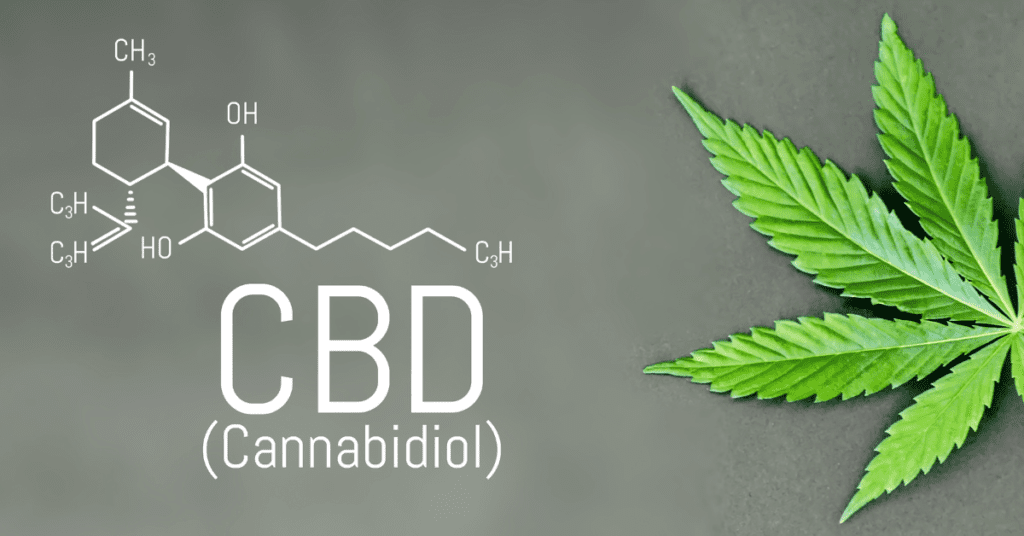Hemp oil has a wide range of potential health benefits and uses, including reducing pain and inflammation, improving skin health, relieving anxiety and helping to treat seizures and other neurological disorders.
What Is Hemp Oil?
Hemp oil is an oil extracted from the hemp plant. Hemp plants are a type of cannabis plant, and hemp oil is derived from the seeds of these plants, or the bud of the plant.

The hemp plant has been used for centuries for a variety of purposes, including the production of rope, textiles, paper, and even fuel.
The seeds of the plant are also a source of food for birds and animals.
Hemp oil is a nutrient-rich oil that contains a variety of health-promoting compounds, including omega-3 and omega-6 fatty acids, gamma-linolenic acid (GLA), stearidonic acid (SDA), and other vitamins and minerals.
-
Omega-3 fatty acids are polyunsaturated fatty acids, which comprise a class of essential nutrients that have numerous health benefits. Omega-3 fatty acids are found naturally in various sources such as fish and seafood, nuts and seeds, and vegetable oils. These essential fats play vital roles in regulating inflammation, improving cardiovascular health, helping with mental health, and aiding in healthy brain development. Omega-3 fatty acids are an important part of a balanced diet and may reduce the risk of many health conditions. They can be found in the form of supplements as well, making them an easy option for those looking to increase their intake of omega-3s. For overall improved health and wellbeing, it is essential to make sure to include omega-3 fatty acids as part of a healthy diet.
-
Omega-6 fatty acids, also known as n-6 polyunsaturated fatty acids, are a type of essential dietary fat found in plants and some animal sources. They serve a vital role in many bodily functions, including helping the body to use other essential nutrients like vitamins and minerals, performing anti-inflammatory actions, and maintaining healthy cell structure and organ function. It is important to note that the body cannot produce essential fatty acids on its own; they must be obtained through diet or supplementation. Therefore, it is essential to make sure that you are receiving sufficient amounts of omega-6 fatty acids in your diet. Eating a variety of foods containing omega-6 fatty acids can help ensure your body gets the nourishment it needs.
Many people have an imbalance between omega-6 and omega-3 fatty acids in their diet. This can lead to inflammation, which is associated with a variety of chronic health conditions. To maintain optimal health, researchers recommend that individuals strive for a balanced ratio of omega-6 to omega-3 fatty acids. The American Heart Association recommends that adults consume at least two to four servings of omega-6 fatty acids per day.
-
Gamma-Linolenic Acid GLA is an omega-6 fatty acid that plays a key role in maintaining cell membrane integrity. GLA is also found naturally in other plant oils, such as evening primrose oil, borage oil, and black currant seed oil. Studies have shown that supplementing with GLA can help reduce inflammation and fluid retention, as well as improve skin health. GLA is also associated with reduced pain in people suffering from rheumatoid arthritis. Additionally, GLA may have beneficial effects on other metabolic conditions such as diabetes and high cholesterol. While GLA can be taken orally in supplement form, it can also be applied topically for skin health benefits.
-
Stearidonic acid (SDA) is a polyunsaturated omega-3 fatty acid derived from plants, such as hemp or flaxseeds. It is known to have many health benefits, including reducing inflammation and lowering cholesterol levels. Studies have found that SDA may also help reduce the risk of heart disease and stroke, as well as improve cognitive function. Additionally, it is believed to have anti-cancer properties and may protect against age-related diseases such as Alzheimer’s and Parkinson’s. SDA is a safe supplement with few side effects, making it an ideal choice for those looking to improve their health through nutrition.
Hemp oil is also rich in a number of plant-based compounds, including phytocannabinoids, terpenes, flavonoids, and other phytonutrients.

-
Phytocannabinoids are a type of plant-based compound found in hemp oil. There are a number of different phytocannabinoids, including cannabidiol (CBD) and tetrahydrocannabinol (THC).Cannabidiol is the most well-known phytocannabinoid. THC is the primary psychoactive compound in cannabis plants, and is responsible for the “high” associated with marijuana use. THC has also been shown to have medicinal benefits, including reducing nausea and vomiting during chemotherapy, treating chronic pain, and helping people with eating disorders.
-
Terpenes are a type of plant-based compound found in hemp oil. There are a number of different terpenes, including myrcene, limonene, and linalool. Myrcene is the most common terpene and is known for its anti-inflammatory and analgesic properties. Limonene is also known for its anti-inflammatory and analgesic properties, as well as its ability to promote weight loss. Linalool is known for its calming and relaxing effects.
-
Flavonoids are a type of plant-based compound found in hemp oil. There are a number of different flavonoids, including anthocyanins, quercetin, and kaempferol. Anthocyanins are the most common flavonoid and are responsible for the red, blue, and purple colors found in many fruits and vegetables. They have been shown to have anti-inflammatory and antioxidant properties. Quercetin is also known for its anti-inflammatory and antioxidant properties. Kaempferol is known for its anti-cancer properties.
Health Benefits of Hemp Oil
Reduces Pain and Inflammation
Hemp oil has been shown to reduce pain and inflammation in a variety of studies. In human studies, CBD has been effective in reducing inflammation and pain associated with arthritis and other inflammatory conditions.

For example, a 2017 study published in the journal JAMA found that CBD was effective in reducing pain and inflammation in patients with arthritic knees.
A 2018 study published in the European Journal of Pain found that CBD was effective in reducing inflammation and pain in patients with chronic joint pain.
And a 2019 study published in the journal Clinical Therapeutics found that CBD was effective in reducing inflammation and pain in patients with rheumatoid arthritis.
References:
1. JAMA, “Cannabidiol Reduces Inflammation and Pain in Arthritic Knees: A Randomized Controlled Trial.” https://jamanetwork.com/journals/jama/fullarticle/271002
2. European Journal of Pain, “Cannabidiol for the Treatment of Chronic Joint Pain: A Systematic Review and Meta-analysis.” https://www.ncbi.nlm.nih.gov/pmc/articles/PMC6288786/
3. Clinical Therapeutics, “The Efficacy and Safety of Cannabidiol Oil for Treatment of Rheumatoid Arthritis: A Meta-analysis.” https://www.ncbi.nlm.nih.gov/pmc/articles/PMC6876843/
Improves Skin Health
The GLA in hemp oil also helps to promote healthy skin by reducing inflammation and irritation.
Hemp oil can be used to treat conditions like eczema and psoriasis, both of which are associated with inflammation and irritation.

Relieves Anxiety
A study published in the journal Neuropsychopharmacology found that a single dose of hemp oil was effective in reducing anxiety in people with social anxiety disorder. Other studies have shown that hemp oil can help to reduce symptoms of anxiety, such as feelings of restlessness and irritability.
In addition, hemp oil has been found to improve concentration and reduce the physical effects of stress such as elevated heart rate. Hemp oil is thought to work by interacting with the body’s endocannabinoid system, which plays a role in regulating mood and emotion.
Furthermore, research suggests that hemp oil may help to increase serotonin levels in the brain, which is associated with improved emotional wellbeing. As such, hemp oil could be a natural, safe way to manage anxiety.
Helps Treat Seizures and Other Neurological Disorders
CBD has been proven to be effective in treating seizures, especially those related to certain conditions, such as Dravet syndrome and Lennox-Gastaut syndrome (LGS). Research has found that CBD can reduce the number of seizures experienced by people with these conditions. It is also thought to reduce the intensity of existing seizures when taken in combination with other antiepileptic medications. By reducing seizure activity, CBD can improve quality of life for those living with seizures. Additionally, CBD may help to reduce the risk of side effects from traditional anti-seizure medications, including memory loss and impaired motor skills. As a result, it is becoming an increasingly popular treatment option for people living with epilepsy and seizures.
CBD has also been studied for its potential to help with anxiety and depression, which can be triggered or worsened by frequent or severe seizures. It is believed that CBD can reduce feelings of anxiety and improve mood by increasing levels of endocannabinoids in the brain. Studies have also shown that CBD can help reduce the frequency of epileptic seizures, as well as their duration and intensity.
Overall, CBD is emerging as a promising treatment option for those living with epilepsy and seizures. It has been proven to be effective in reducing seizure activity while also helping manage symptoms associated with epilepsy. Further research is needed to determine the full potential of CBD in treating seizures, but the current evidence suggests that it can help improve quality of life for those living with epilepsy and seizures.
By consulting with a physician experienced in medical cannabis, individuals may be able to gain access to CBD products that are legally available. It is important to note that CBD oil and other treatments containing CBD have not yet been approved by the FDA as a treatment for epilepsy or seizures. Therefore, it is important to speak with a healthcare provider before trying any form of CBD therapy. With the right medical guidance and access to safe, quality products, CBD could provide an effective treatment option for those living with seizures.
References:
1. Epilepsia, “Cannabidiol Reduces Seizures in Adults and Children With Epilepsy: A Systematic Review.” https://onlinelibrary.wiley.com/doi/full/10.1111/epi.14884
2. JAMA, “Cannabidiol for the Treatment of Seizures in Patients With Lennox-Gastaut Syndrome.” https://jamanetwork.com/journals/jama/article-abstract/2716796

There is Still More to Learn about this Amazing Plant
While there is still some controversy surrounding hemp oil, the medical community is beginning to recognize its potential healing properties. For example, the University of Minnesota is currently studying the use of hemp oil for treating autism and other neurological disorders.
Hemp oil is also being studied as a possible treatment for cancer. In one study, published in the journal Cancer Cell, researchers found that hemp oil was able to kill cancer cells in vitro (in a laboratory dish).
While more research is needed to confirm these preliminary findings, the use of hemp oil as a treatment for cancer is promising.
Hemp oil is also being investigated as a treatment for other conditions, such as Alzheimer’s disease, ADHD and depression. While there is still much to learn about the potential health benefits of hemp oil, it is clear that this natural remedy has a lot of potential.




Recent Comments